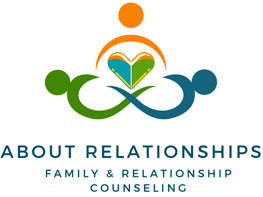Why Does My Therapist Ask Me About My Childhood?
In therapy, we may ask clients to describe aspects of their childhood. “I had a normal childhood” or “it was fine.”
It takes some time before we uncover what “good” and “fine” truly means.
We all know that our parents usually tried the best they could with what they had. There could be tons of great memories with your parents. Additionally, you can probably recall some stressors, too.
-Your parents may have had to work a lot.
-A parent may have drank too much.
-There may have been a lot of conflict.
-Your parent may have had rigid rules and high expectations.
The list is infinite.
And now, as a resilient and responsible adult, you wonder why that is relevant. These are common phrases we hear:
“The past is in the past.”
“This has nothing to with my parents.”
“I was fine until [insert recent conflict that prompted the conversation].”
“Talking about childhood is a waste of our time, let’s talk about now.”
Don’t get us wrong, these are valid points. However, there is a method to our explanation. Here’s why.
“This is because talking about our childhood experiences helps us grieve and process any losses or emotional injuries we suffered as children. We all need to understand and heal our childhood wounds, so we don’t carry them with us into adult life.”
Valda Prado-Sampaio, Clinical Psychologist
If we don’t reflect and learn from the past, we won’t heal. This means we may (unconsciously) use maladaptive ways of coping and repeat unhealthy patterns of behaviors (that may have served us well in childhood but that are no longer helpful or appropriate) when we face challenges in adulthood. This can have a very negative affect on all our adult relationships, especially our relationship with our children, our intimate partners, and ourselves.
You may think this isn’t relevant to you if you had a loving upbringing. However, to some extend, every person, including those who had positive childhoods, have acquired coping mechanisms to deal with emotional experiences (healthy and unhealthy). All parents struggle to provide for all of their children’s needs at some point while simultaneously trying to meet their own and managing the daily responsibilities of life. Can you think of the factors that may have impacted your parents accessibility + receptiveness in your childhood? (other siblings, health issues, financial stress, parental alcohol/substance usage, marital conflict, mental illness, lack of resources, interpersonal stress, etc.)
“I’m not saying how we turn out as adults is all about our upbringing or the kind of parenting we had. Our personalities are shaped by an ongoing interaction between inherited tendencies and environmental experiences. But the bonds we create in our families of origin, especially with our parents (or primary caregivers) are unique, unlike any other connections in life. These early daily experiences are etched in our memory forever and are powerfully influential throughout our lives. They’ll impact our thoughts, feelings, attitudes, beliefs, and behaviours – mostly outside our conscious awareness.”
-Valda Prado-Sampaio
